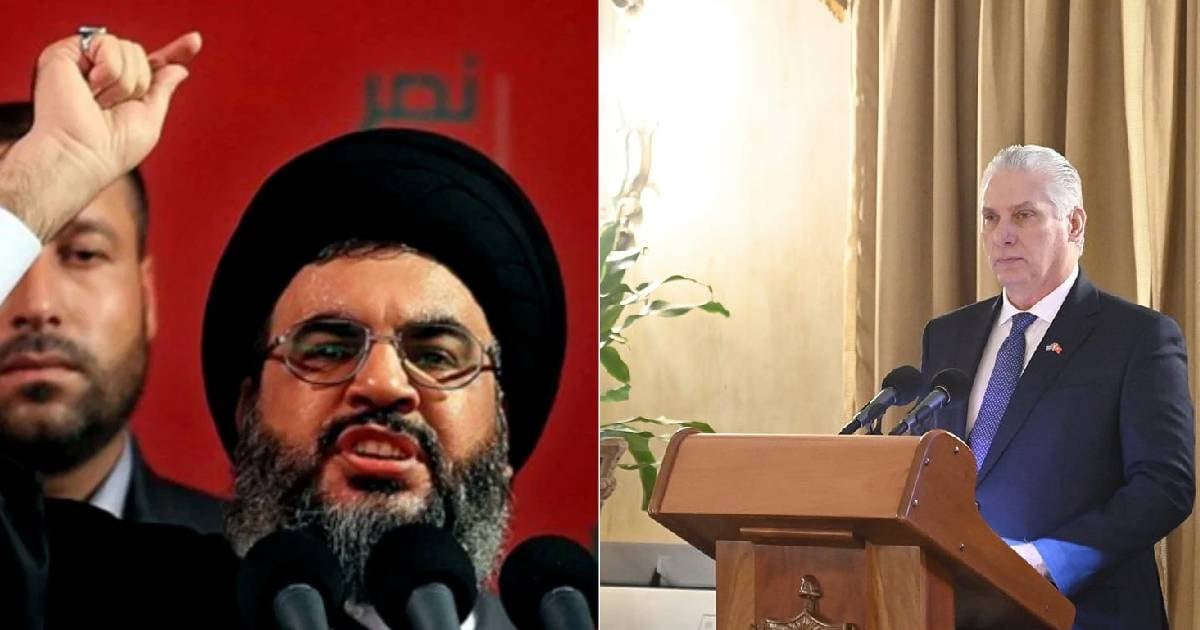
The Cuban leader Miguel Díaz-Canel lamented the death of Hezbollah leader Hassan Nasrallah, which occurred this Friday after an Israeli airstrike in Beirut.
"We condemn the cowardly selective assassination of Hassan Nasrallah, secretary general of Hezbollah, as a result of the attack carried out by Israel against residential buildings in the southern suburb of Beirut, causing destruction and the death of innocent civilians," wrote Díaz-Canel on X.
The leader added that "this fact seriously threatens regional and global peace and security, for which Israel, with the complicity of the United States, bears full responsibility."
The Israeli airstrike that resulted in Nasrallah's death took place in the suburb of Haret Hreik, in southern Beirut, where six buildings were demolished in the largest attack on the Lebanese capital in nearly a year of fighting between Israel and Hezbollah.
Although Israel has not officially confirmed that Nasrallah was the target, three major Israeli television channels reported that his death was the result of the attacks in the southern suburbs of Beirut. The operation also left dozens dead and injured and affected Hezbollah's headquarters in the city.
Nasrallah, 64, became leader of Hezbollah in 1992, following the death of his predecessor, Sayyed Abbas Musawi. Under his command, Hezbollah not only fought wars against Israel but also actively participated in the conflict in Syria, supporting dictator Bashar al-Assad and strengthening the Axis of Resistance, a network of alliances backed by Iran.
The death of Nasrallah raises serious questions about the future of Hezbollah and its role in the region. His leadership was crucial in the withdrawal of Israeli troops from southern Lebanon in 2000 and in the 34-day war with Israel in 2006, which solidified his reputation as one of the greatest enemies of the Israeli state.
Without its central figure, Hezbollah's leadership could become fragmented, opening the possibility of internal struggles for control.
What do you think?
COMMENTFiled under: